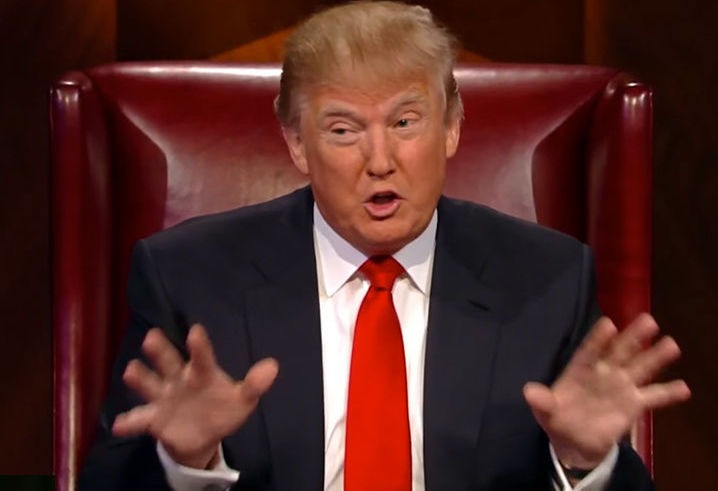Six thoughts on the impeachment of Donald Trump

For weeks it’s been clear that Donald Trump would end up taking office, regardless of the illegitimate nature of his election victory or his mounting criminal scandals. Despite popular wishful thinking, there’s no such thing under the law of constitution as a candidate being “disqualified” from taking office, or an election result being “invalidated.” But now that he’s about to take office, a very real constitutional concept comes into focus: impeachment. Unfortunately it’s one of the most misunderstood concepts in all of American politics. But it’s fairly straightforward. Here are six thoughts on the impeachment of Donald Trump:
1) “Impeachment” doesn’t mean removal. Of the two presidents who have been impeached, Andrew Johnson and Bill Clinton, neither one was removed. The only president forced to resign, Richard Nixon, never was impeached. What “impeachment” really means is a set of criminal hearings in the House, and then if necessary, a criminal trial in Senate. So it’s important to understand that impeaching Donald Trump would not necessarily result in his removal, nor would that necessarily be the goal.
2) There is nothing specific under the law that triggers impeachment hearings. There’s a popular misconception that if enough evidence of “treason” surfaces around Trump, he’ll automatically be impeached, but it doesn’t work that way. The House of Representatives gets to decide when or if to start impeachment based solely on its own judgment. The Republicans have a majority in the House, so they’d prefer not to impeach Trump, but history suggests they will if they have to.
3) Nixon wasn’t forced out due to any specific Watergate evidence that surfaced. Instead, he simply became so buried in the exploding Watergate scandal that the public gradually turned completely against him, to the point that his approval rating was in the neighborhood of 25% (for reference, Trump’s is currently in the high thirties). At that point the House made impeachment overtures in order to maintain its own credibility, essentially having been forced into it by public pressure. Nixon then resigned in order to avoid that impeachment. The same general theory applies here: if Trump becomes so toxically unpopular that he’s an albatross around the neck of House Republicans, they may reluctantly move to impeach him so they have a fighting chance in the midterms. And if they fail to move against him, they’ll likely pay the price in the 2018 midterms, and then the Democrats will impeach him once they take the majority.
4) If impeachment hearings begin right after the 2018 midterms, which is the most likely point, Trump would already be halfway through his term. The House Democrats might impeach him for the purpose of tying him up in hearings and depositions for the entire third year of his presidency, and perhaps even much of the fourth year. The point could simply be to prevent him from being able to do anything but participate in the impeachment, keeping him neutered, and essentially run out the clock on his term.
5) That’s not to say the Democrats won’t necessarily try to remove him from office at the end of the impeachment. But if he only has something like six or nine months remaining in his term by the time the hearings and trial are finished, there would be little incentive to remove him unless his mental condition is deteriorating and there’s the concern that he might actually get us all killed. If the Democrats remove Trump, they’ll be elevating Mike Pence to the presidency, and they’ll be setting him up as the de facto 2020 Republican frontrunner. Though Pence would be scarred politically by the Trump scandal and impeachment, and he could prove to be a highly unpopular “president” with little political muscle during his brief time in the Oval Office.
6) There’s a popular theory that the House Republicans might try to quickly impeach Donald Trump so they can usher Mike Pence into office, who would likely be more willing to facilitate whatever legislation they want to pass. But that doesn’t really hold up under scrutiny. If the Republican Party does have to impeach its own president, the entire party will be tainted by it. Pence and the GOP would have relatively real world political capital at that point, and would be stuck running out the clock. The Republicans won’t impeach Trump unless they feel they have to.
The bottom line is that the impeachment of Donald Trump won’t happen overnight. If it does happen in the next two years, it’ll be because he becomes so crushingly unpopular that the House Republicans feel they need to move against him in order to maintain their own chance of reelection. If it happens at all, it’s more likely to be right after the midterms. And even Trump is impeached, that doesn’t mean his removal will be the result or the goal. Of course, as erratic as he is, he could grow tired of the job and resign before anyone involved has to decide whether to impeach him.
